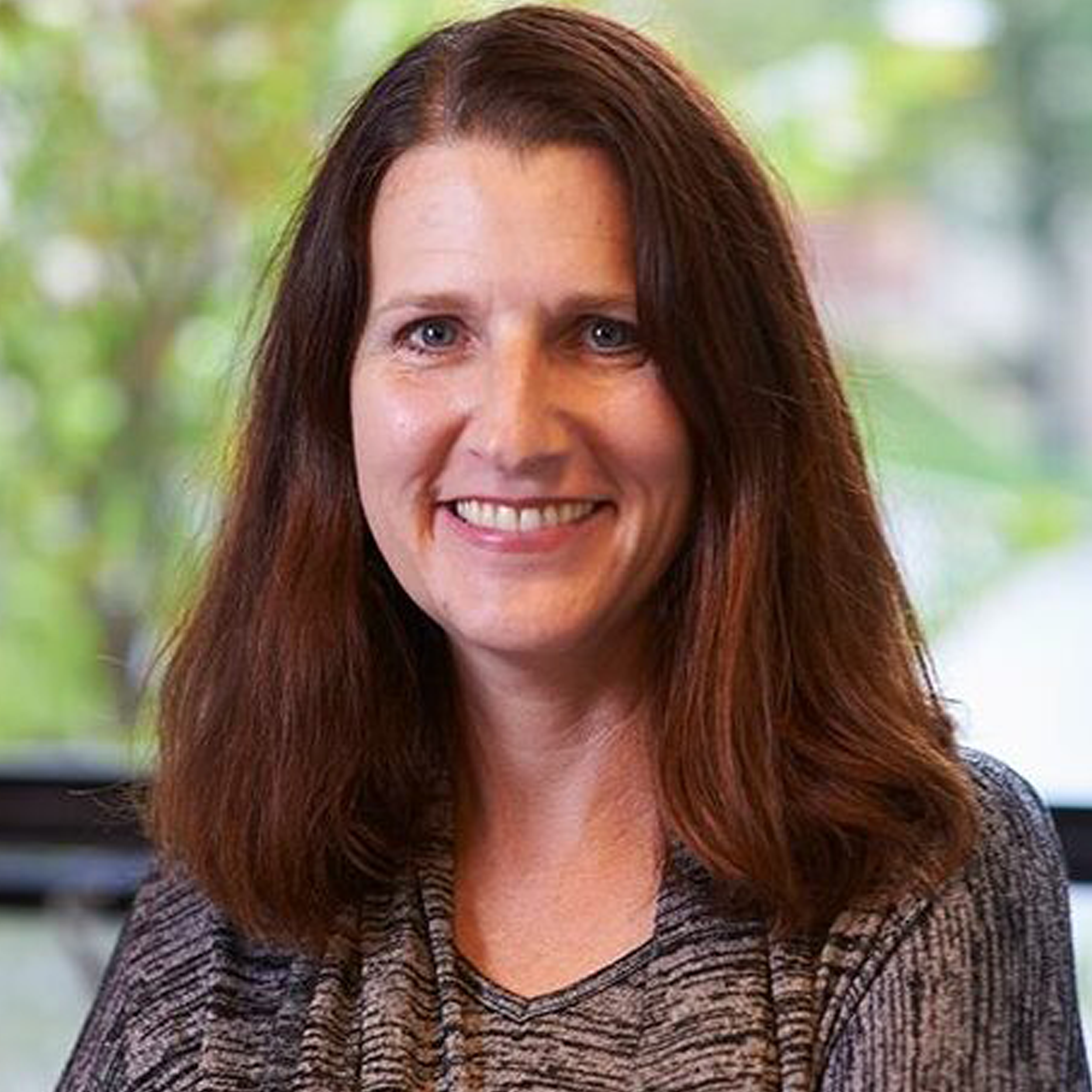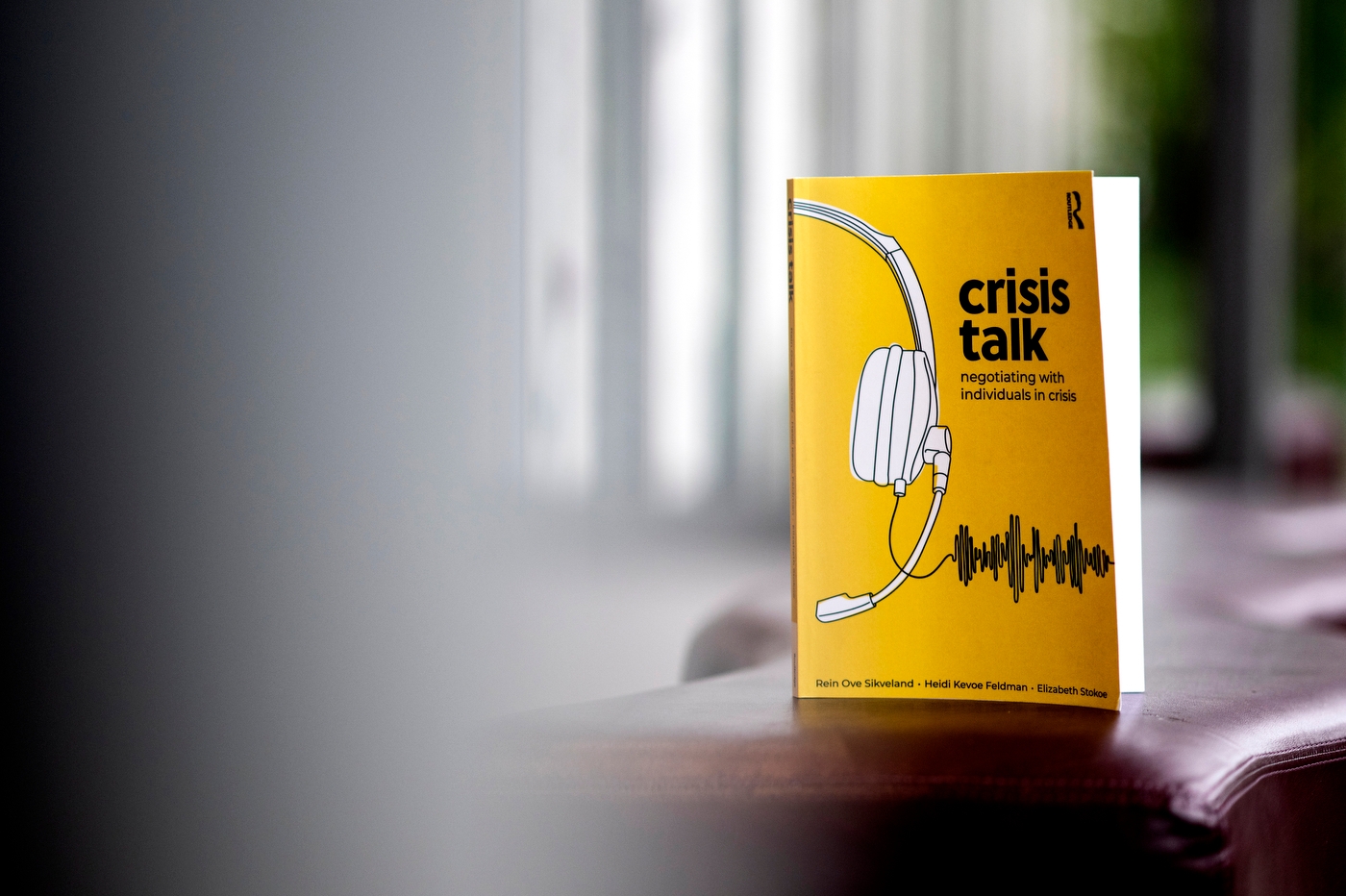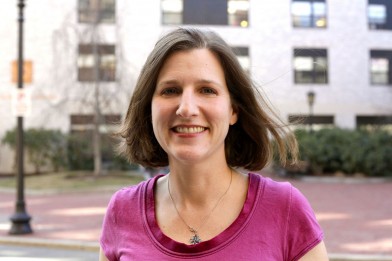Departments
Communication Studies
Education
- PhD Communication (Language and Social Interaction), Rutgers University
Awards
- Research Fellowship, Loughborough University October 2017; March 2018
- Top 4 paper, Language and Social Interaction Division at the National Communication Association Convention, San Diego, CA, 2008.
- Visiting Scholar, University of California, Los Angeles, Department of Sociology, January-June, 2006
- Visiting Scholar, University of California, Santa Barbara, Sociology Department, January-June, 2006.
Research Focus
- Conversation Analysis
- Conversation Analytic Role Play Method (CARM)
- Social Interaction
- Customer Service Training
- 911 Emergency Dispatch
Dr. Heidi K. Feldman, Ph.D., EMD, (Ph.D. Rutgers University) is an Associate Professor in the Department of Communication Studies at Northeastern University, Boston. She teaches courses on conflict and negotiation, crisis communication and image management, and analyzing conversations in everyday life. As a researcher of language and social interaction, she uses a scientific method called conversation analysis, which relies on recorded conversations between people in real settings such as 911 emergency calls. By using conversation analysis, Dr. Feldman offers a systematic account of the various methods people use to produce actions, get activities started, and shows how people make sense of unfolding situations.
Her research spans across various call centers from customer service to 911 emergency call centers. She collaborates with domestic and international scholars on subjects ranging from crisis talk to overcoming barriers in interaction and action design in institutional and ordinary talk. Most recently she’s collaborated on an international project focusing on how negotiators work to overcome suicidal persons’ resistance in police and 911 emergency call negotiations. Current projects focus on emergency medical calls where she considers interactional problems that delay the delivery of life-saving medication, how to reduce time for callers to perform CPR compressions on a patient in cardiac arrest, and how 911 emergency dispatchers work through a caller’s emotional hysteria to get them to focus on patient care during an emergency call.
Dr. Feldman’s work appears in top academic journals such as Communication Monographs, Research on Language and Social Interaction, Discourse Studies, among others. She presents her research at competitive academic conferences as well as professional conferences such as Navigator, NENA, and APCO. She is a TEDx Northeastern veteran, and shares stories about her work on podcasts hosted by the International Academy of Emergency Dispatch. Dr. Feldman also consults with Dispatch Supervisors and Quality Control managers to help improve efficiency in the call centers. By providing an analysis of problematic calls, or call types that pose the most significant challenge for dispatchers, Dr. Feldman has produced findings that lead to changes in policy, improve call handling procedures, and offers additional insight for training.
Research/Publications Highlights
- Sikveland, R.O., Kevoe-Feldman, H ., Stokoe, E. (2019) Overcoming suicidal persons’ resistance using productive communicative challenges during police crisis negotiations. Applied Linguistics (pp 1-20, doi:10.1093/applin/amy065)
- Kidwell, M & Kevoe-Feldman, H. (2018) Making an Impression in Traffic Stops: Citizens’ Volunteered Accounts in Two Positions. Discourse Studies, 20(5), 613-636.
- Kevoe-Feldman, H. & Pomerantz, A. (2018) Critical timing of actions for transferring 911 calls in a wireless call center. Discourse Studies, 20 (4), 488-505.
- Kevoe-Feldman, H. & Sutherland, B.C. ( 2018) The “four second rule” for identifying the active silent 911 caller. Annals of Emergency Dispatch and Response, 6(1), 5-9.
- Kevoe-Feldman, H. (2018) The interactional work of suppressing complaints in customer service encounters. Journal of Pragmatics, 123, 102-112.
- Kevoe-Feldman, H . (2016). “Why Are You Concerned?” A Consideration of Turn Distance and the Organization of the Interrogative Series in “Wellness Check” Calls to a University Police Department. Discourse Processes, 53(7) 556-580.
- Kevoe-Feldman, H. (2015). Working the overall structural organization of a call: How customers use third position as leverage for gaining service representatives’ assistance in dealing with service problems. Language and Communication. 43, 47-57.
- Kevoe-Feldman, H. (2015). What Can You Do for Me? Communication Methods Customers Use to Solicit Personalization within the Service Encounter. Communication Monographs , 82 (4), 510-534.
- Kevoe-Feldman, H. (2015). Closing the gap in customer service encounters: Customers’ use of upshot formulations to manage service responses. Pragmatics and Society, 6(1), 67-88.
- Kitzinger, C. Lerner, G.H., Wilkinson, S, Zinken, J., Kevoe-Feldman, H., Ellis, S. (2013). Reformulating Place. Journal of Pragmatics, 55, 43-50.
- Kevoe-Feldman, H. (2012) Customers’ participation in organizational structure: A conversation analytic approach for understanding the action of service inquiries. Communication Reports, 25(1), 14-26.
- Kevoe-Feldman, H. & Robinson, J.D. (2012). Exploring essentially three-turn courses of action: An institutional case study with implications for ordinary talk. Discourse Studies. 14(3), 217-241.
- Kevoe-Feldman, H. , Robinson, J.D., Mandelbaum, J (2011). Extending the notion of pragmatic completion: The case of the compound action unit. Journal of Pragmatics, 43, 3844-3959.
- Robinson, J.D. & Kevoe-Feldman, H. (2010) Using full repeats to initiate repair on others’ questions. Research on Language and Social Interaction, 43(3), 232-259.
- Media Appearances
- 2019 TEDx Northeastern, March 23, 2019. “What 911 Dispatchers Teach Us About Talk”
- 2018 Invited: DARG archive interview https://www.youtube.com/watch?v=6WirtDb1U4k
- 2018 Invited PodCast Interview: Silence is not always golden with Dr. Heidi Feldman. Produced by the Annals of Emergency Dispatch & Response, Editorial Team, May 15, 2018, Dispatch in Depth. https://www.aedrjournal.org/silence-is-not-always-golden-with-dr-heidi-feldman/
Professional Affiliations
- National Communication Association



